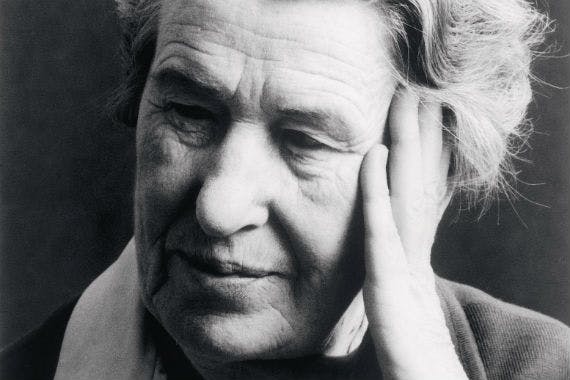In September 1940, in the dark days of the Second World War, Denmark was occupied by Germany and Rudie Agersnap was elected chairman of the Danish Massage Association. Restrictions and rationing brought challenges for the profession, with a lack of necessary goods for the masseuses to carry out their work.
Palmine – purified and bleached coconut fat – was needed, for massage. But the indispensable palmine quickly became a scarce commodity, and the Massage Association had to turn to the Ministry of Trade to press for new supplies. Unfortunately in vain, as there were no palmine stocks in Denmark.
Where her predecessor had a quiet management style and held cozy meetings at home, Rudie Agersnap stood for a more distinctive style. She personally sought out the conservative trade minister Halfdan Hendriksen to ensure that there was coconut oil in the pharmacies for a year’s consumption. In response the Ministry of Trade promised to provide the nine tonnes of oil required for the association’s 600 privately practicing masseuses. Emboldened by their success, bicycle tires, bicycle tubes and rubber for valves were subsequently put on the wish list.
The masseuses’ pay conditions were also on the chairman’s mind. She succeeded in signing nationwide agreements with the Hospital Association and the Central Association of Hospitals in 1941 and 1942. At the same time the association submitted a proposal to the Danish Health Authority for state registration, instead of being authorised by the medical profession, and a change to their educational requirements, extending it from the existing two years and including three months of compulsory hospital practice.
Whilst there was general support from the profession for Agersnap’s plans, members were afraid of losing the goodwill of the doctors. A run-off vote of the membership was fatal for the chairman: a majority voted no, and Rudie Agersnap chose to resign in October 1944.
When the Second World War ended in 1945 and the German occupation troops left the country, borders were opened and it was again possible to travel. Foreign masseuses and physiotherapists came to Denmark, while Danish masseuses went abroad to study, mostly to England, but also to the USA, Switzerland, France and the Netherlands. The experiences of the United States and England with the treatment of wounded soldiers led to new treatment methods, and the treatment of children during the polio epidemic was predominantly carried out by masseuses, in collaboration with doctors. This gave the Danish masseuses a completely new and different role from the passive and obedient assistant that the Medical Association had tried to maintain.
In September 1946, Rudie Agersnap became editor of the journal of the Danish Massage Association. From her exposure to physiotherapy in other countries she questioned whether Danish masseuses could meet international standards. She did not think that the masseuses were independent enough and had the necessary knowledge. It was the first time that someone had compared Danish masseuses and their training in relation to other countries. According to Rudie Agersnap, the main problem was that the masseuses in Denmark literally received a school education. It was necessary for them to be able to read and acquire scientific articles and work independently.
Rudie Agersnap charted a new course for the development of the profession in Denmark. It became a guide for her further work, when in 1953 she was elected for the second time as chairman of the association. Shortly before, the association had changed its name to Danske Fysioterapeuter, the first professional association in Europe to do so. At the time Agersnap wrote,
The title [masseuse] might have been good enough 25 years ago, but we must gradually understand that what we deal with, is physiotherapy, and we are therefore physiotherapists, even if both we ourselves and our patients in the first years will think it sounds strange.
Agersnap’s interest in international affairs saw her join the inaugural board of the nascent World Confederation of Physical Therapy (WCPT), where she later became the chairman from 1959 to 1967. Danish Physiotherapists subsequently hosted the WCPT congress in 1963 further internationalising physiotherapy for the nation.
In 1968, Agersnap finally achieved her objective of physiotherapists obtaining state registration. She continued as chairman of Danske Fysioterapeuter until 1971.
References
Danske Fysioterapeuter. (2018). 100 års jubilæum [100 years anniversary]. Accessed online at https://www.fysio.dk/om-os/100aar on 27 May 2024. Translated by Google translate.


Great story of persistence to achieve independence for physiotherapists in the health care system. I wish I had met her. Rod Farr